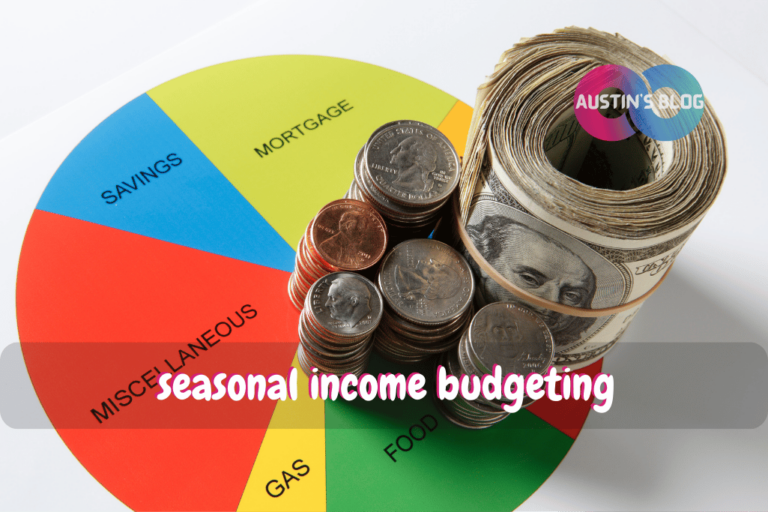The Complete Guide to Freelance Writer Finances in 2025
Introduction
Did you know that 63% of freelancers identify managing an irregular income as their biggest challenge? [1]
As someone who’s been a freelance writer for over a decade, I’ve been there too!
I remember the early days of my freelance career when I’d bounce between feast and famine, sometimes staring at my bank account wondering how I’d make it through the month.
Managing finances as a freelance writer presents unique challenges that traditional employees don’t face.
From unpredictable income streams to self-employment taxes, handling business expenses to planning for retirement – it can feel overwhelming when you’re the one responsible for it all.
The good news?
With the right systems and strategies in place, you can master your freelance finances and create both stability and growth.
In this comprehensive guide on freelance writer finances, I’ll share everything I’ve learned (often the hard way) about managing money as a freelance writer.
We’ll cover setting up basic financial systems, handling irregular income, pricing your services effectively, navigating taxes, and building long-term security.
Whether you’re just starting your freelance writing journey or looking to improve your existing financial setup, this guide will help you take control of your finances so you can focus on what you do best – writing great content. Let’s dive in!
Setting Up Your Freelance Writing Financial System
When I first started freelancing, I made a rookie mistake – using my personal checking account for business transactions.
Tax time was a nightmare! I spent days sorting through statements trying to separate business expenses from personal ones. Don’t be like first-year-freelancer me.
The foundation of solid freelance writer finances is separation. Business and personal finances should never mix.
I learned this lesson the hard way, but you don’t have to. Start by opening a dedicated business checking account.
Most banks offer business accounts with minimal fees, especially for sole proprietors. This simple step makes tracking income and expenses infinitely easier.
Next, consider your payment acceptance methods.
I use a combination of direct deposit, PayPal, and Stripe to accommodate different client preferences.
Each payment method connects directly to my business account. Setting this up took about an afternoon, but has saved me countless hours of financial confusion.
For bookkeeping, you don’t need anything fancy when you’re starting out.
I began with a simple spreadsheet tracking income and expenses.
As my business grew, I upgraded to QuickBooks Self-Employed, which automatically categorizes transactions and calculates quarterly taxes.
The $15 monthly fee quickly pays for itself in time saved and peace of mind.
One thing I wish I’d done sooner is create a filing system for financial documents.
Now I keep digital copies of all contracts, invoices, and receipts organized by year and client.
Cloud storage services like Google Drive or Dropbox work perfectly for this. When tax season rolls around or a client questions an invoice, I can find what I need in seconds instead of panicking.
Speaking of invoices, professional invoicing is essential. I use FreshBooks to create and track invoices, but there are many good options available.
Your invoices should include your business name, contact information, payment terms, and detailed descriptions of services provided.
Clear, professional invoices help you get paid faster and establish your credibility as a business.
Managing Inconsistent Income as a Freelance Writer
Ah, the freelancer’s dilemma – one month you’re flush with cash, the next you’re eating ramen noodles.
I’ve experienced months with $10,000 in income followed by months with barely $1,000.
This income roller coaster is probably the toughest part of freelance finances, but there are ways to smooth out the ride.
The first step is knowing exactly what comes in and goes out. I track every penny using an app called YNAB (You Need A Budget), but any tracking method works as long as you’re consistent.
This gives me a clear picture of my average monthly income over time – a crucial number for planning purposes.
Creating a baseline budget was a game-changer for me. I calculated the absolute minimum I need to cover essentials like housing, food, insurance, and utilities.
This “survival number” helps me know when to tap into savings or when I can afford to invest in my business. I always aim to earn at least 1.5 times this amount each month.
Income smoothing techniques have helped me create more stability.
My favorite is the “personal salary” method. All my freelance income goes into my business account, and I pay myself the same amount on the same day each month – like a regular paycheck.
During high-income months, the excess builds up in my business account. During lean months, I still get my regular salary. This simple system has drastically reduced my financial stress.
Building a proper emergency fund took me years, but it’s the ultimate financial safety net. I’ve gradually built up six months of expenses in a high-yield savings account.
When a major client unexpectedly ended our contract, this fund kept me afloat while I found new work.
Start with a goal of one month’s expenses, then gradually build from there.
Diversification is another key strategy I’ve embraced. I now have multiple income streams: client work, a newsletter with paid subscribers, affiliate income from my blog, and occasional speaking gigs.
When one source slows down, others often pick up. I also diversify across different types of clients and industries, so I’m never completely dependent on a single source.
Pricing Your Services for Financial Stability
Pricing – the eternal freelance writer struggle!
I spent my first year seriously undercharging for my services. I was making less than minimum wage when I factored in all the time spent on admin, research, and revisions.
Let’s make sure you don’t make the same mistake.
Calculating your minimum hourly rate is essential, even if you don’t charge by the hour.
Start with your annual income goal (be realistic but don’t sell yourself short).
Then divide by the number of billable hours you can work in a year.
Remember, not every working hour is billable! I’ve found that about 60% of my working time is actually billable, with the rest going to marketing, admin, and professional development.
For example, if you want to earn $60,000 annually and can bill 1,000 hours per year (roughly 20 hours per week), your minimum hourly rate needs to be $60.
From there, add a buffer for taxes, business expenses, and benefits you need to provide yourself. My rule of thumb is to add at least 30% to this base rate.
I’ve experimented with both project-based and hourly pricing, and found that project-based usually works better for writing services.
Clients prefer the predictability, and I can be rewarded for efficiency. However, I always calculate my project rates based on a realistic estimate of hours multiplied by my minimum hourly rate.
Value-based pricing was a revelation when I discovered it. Instead of just charging for my time, I consider the value my writing provides to clients.
A blog post that generates leads for a high-ticket service business is worth far more than the same post for a hobby blog.
This approach has allowed me to increase my rates with certain clients without increasing my workload.
Raising rates is uncomfortable but necessary. I now review and adjust my rates every six months.
For existing clients, I provide at least 30 days’ notice of rate increases and explain the value they’ll continue to receive.
Most clients understand that rates increase over time, especially if you’re delivering excellent work.
Taxes and Legal Considerations for Freelance Writers
Tax time used to fill me with dread until I got my systems in order.
The self-employment tax reality hit me hard my first year – I wasn’t prepared for paying both the employer and employee portions of Social Security and Medicare taxes (currently 15.3% total).
Understanding what you can deduct is crucial for reducing your tax burden.
As writers, we can deduct home office expenses, professional development, software subscriptions, research materials, and even portions of phone and internet bills.
I keep receipts for everything work-related, from conferences to coffee shop meetings.
My favorite tax deduction is my SEO tools subscription – it’s expensive but fully deductible and essential for my business.
Quarterly estimated tax payments were a learning curve. Instead of paying taxes once a year like employees, freelancers need to make estimated payments four times annually (generally April 15, June 15, September 15, and January 15).
Missing these payments can result in penalties.
I use a separate savings account where I set aside approximately 30% of each payment I receive, ensuring I always have enough for tax time.
The question of business entities confused me for years. I started as a sole proprietor (the default) but switched to an LLC as my income grew.
The LLC provides some liability protection and more professional credibility.
For most beginning freelance writers, a sole proprietorship is sufficient, but as your business grows, consult with a tax professional about whether an LLC or S-Corp might benefit you.
Record-keeping might be boring, but it’s essential.
I maintain digital records of all income and expenses, contracts, and tax documents. My system includes a cloud backup to prevent catastrophic loss.
I also keep a log of business mileage and work-related travel. Being able to easily access records has saved me during client disputes and tax questions.
Building Long-Term Financial Security
Planning for the future can feel impossible when you’re focused on making ends meet month to month.
I ignored retirement planning for my first three years of freelancing – a mistake that cost me thousands in potential growth.
Retirement options for self-employed writers include SEP IRAs, Solo 401(k)s, and traditional or Roth IRAs.
I started with a Roth IRA, contributing small amounts monthly.
As my income grew, I opened a SEP IRA which allows for larger contributions.
The tax advantages of these accounts are substantial – don’t leave this money on the table! Even small regular contributions add up significantly over time.
Health insurance remains one of the biggest challenges for freelancers.
I’ve used healthcare.gov to find individual plans, joined a freelancer association that offers group rates, and explored health share ministries.
None are perfect solutions, but having coverage is non-negotiable. A single medical emergency without insurance could wipe out years of financial progress.
Disability insurance is something many freelancers overlook.
If you can’t write, you can’t earn. After a fellow writer was sidelined for months with a wrist injury, I invested in a policy that would replace a portion of my income if I became unable to work.
The monthly premium is worth the peace of mind.
Scaling your business is ultimately the best path to financial security.
I’ve gradually transitioned from solely providing writing services to creating digital products, teaching courses, and building passive income streams.
These additional revenue sources provide stability during client dry spells and don’t directly trade my time for money.
Investing with variable income requires a flexible approach.
I use a “bucket” system – short-term savings for upcoming expenses, medium-term savings for larger goals, and long-term investments for retirement.
During high-income months, I add more to investments. During leaner months, I focus on maintaining essential expenses.
This flexible approach allows for consistent progress despite income fluctuations.
Conclusion:
Managing your finances as a freelance writer is an ongoing journey, not a destination.
I’ve gone from financial chaos to relative stability over years of trial and error, learning, and building better systems.
The strategies we’ve covered – from setting up basic infrastructure to planning for retirement – form a comprehensive approach to freelance writer finances.
Remember, you don’t need to implement everything at once.
Start with separating your business and personal finances, tracking your income and expenses, and setting aside money for taxes.
As you grow more comfortable, add layers of sophistication to your financial management.
The freedom of freelance writing comes with financial responsibility, but that responsibility doesn’t have to be overwhelming.
With intentional planning and the right systems, you can create financial stability that supports your writing career for years to come.
I’d love to hear about your experiences with freelance finances. What strategies have worked for you? What challenges are you facing?
Share in the comments below – we can all learn from each other’s journeys.
Now, take a moment to assess your current financial setup.
What’s one thing you could implement this week to improve your financial situation?
Whether it’s opening a separate business account, tracking your expenses more consistently, or reviewing your rates – small steps lead to significant progress over time.
Your future self will thank you!
Frequently Asked Questions: Freelance Writer Finances
Q: What are some effective ways to make money as a freelance writer?
A: Freelance writers often earn money by offering various writing services such as content writing, copywriting, and technical writing.
You can also explore opportunities in content marketing and social media content creation.
Diversifying your skills and services can help you attract more writing clients and increase your income.
Q: How should a new freelance writer price their services?
A: New freelance writers should consider factors such as the complexity of the writing project, the deadline, and the client’s budget when pricing their services.
Many writers choose to charge per word, per project, or per hour.
Researching industry standards and understanding your own value as a professional writer can help you set competitive rates.
Q: What strategies can help freelance writers attract potential clients?
A: Building a strong online presence through platforms like LinkedIn and showcasing your portfolio can help attract potential clients.
Networking with business owners and participating in content strategy discussions can also open doors to new writing jobs.
Consistently delivering high-quality work and meeting deadlines will enhance your reputation and lead to more referrals.
Q: How can freelance writers manage their finances effectively?
A: Freelance writers need to keep track of their income and expenses to manage their finances effectively.
Setting aside funds for taxes, creating a budget, and planning for irregular income are crucial steps.
Utilizing accounting software and consulting with a tax professional can help you prepare your tax return accurately.
Q: What are some tax considerations freelance writers should be aware of?
A: Freelance writers need to pay attention to individual tax obligations, including self-employment taxes.
Keeping detailed records of income and expenses throughout the tax year is essential. Understanding which tax forms to file and setting aside money for taxes can prevent financial surprises.
Q: How can a freelance writer expand their writing business?
A: To expand your writing business, consider offering additional services such as freelance editing or developing a niche expertise.
Building relationships with existing clients and seeking referrals can lead to more opportunities.
Investing in professional development and staying updated on industry trends will also contribute to your growth.
Q: What are some ways to earn more money as a freelance writer?
A: To earn more money, freelance writers can explore side hustle opportunities, such as writing e-books or creating online courses.
Upselling services to existing clients and increasing your rates as your experience grows are also effective strategies.
Continuously improving your skills and expanding your network will help you secure higher-paying writing jobs.
Q: How can freelance writers maintain a work-life balance?
A: Freelance writers can maintain a work-life balance by setting clear boundaries between work and personal time.
Scheduling regular breaks and planning vacations can prevent burnout. Prioritizing tasks and managing deadlines effectively will ensure you have time to relax and recharge.
Q: What writing advice would you give to someone starting a freelance writing career?
A: For those starting a freelance writing career, it’s important to build a strong portfolio and continuously seek feedback to improve your skills.
Networking with other writers and potential clients can provide valuable insights and opportunities.
Staying organized and disciplined in your work habits will contribute to your success as a freelance writer.






